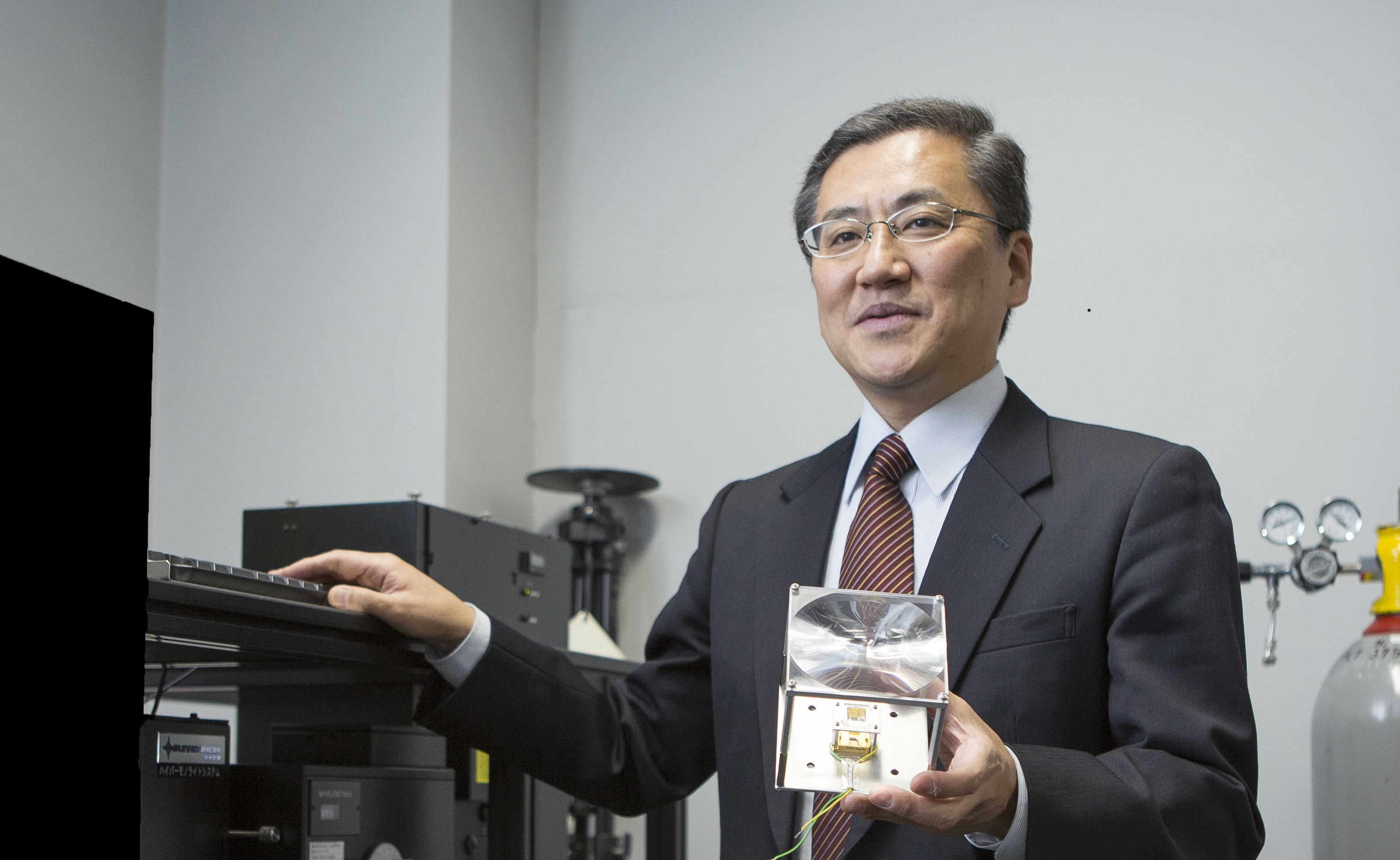- HOME
- Research at RCAST
- Visit to Laboratories
- Okada Laboratory
Okada Laboratory

I want to create innovation that significantly changes lifestyles and that leads to the happiness or spiritual richness of people.
Research and development on high-efficiency solar cells is one of the efforts to settle energy and environmental issues not only on a national scale but also on a global scale.
Wide ranging researches have actively been conducted today in research institutes all over the world.
I want to accelerate solving problems by ‘C&C’ or collaboration and competition.
Especially we aim for technical development as well as fundamental research to put to practical use.
What is Quantum Dot Solar Cell?
In the Okada Lab, they conduct research and development on the next generation of high-efficiency solar cells on methods of introducing new semiconductor material and new quantum nanostructure. It is the ‘quantum dot solar cell' that has received remarkable attention as a new technology which dramatically enhances energy conversion efficiency in converting sunlight in solar cells into electrical energy. Prof. Okada has successfully lead the world in demonstrating the principle of this type of solar cell.
The Quantum dot is an artificial nanocrystal with a diameter of around ten nanometers. When artificial crystals are made through arranging quantum dots periodically, just like atoms found in natural crystal, bundles of discrete energy levels called a ‘band' are formed, which enables electrons to be kept inside the gap of the bundle. By this principle, Prof. Okada has successfully produced a quantum dot intermediate band solar cell. Some of the sunlight which is normally unabsorbable can be efficiently absorbed with this method, arranging quantum dots 3-dimensionally and forming bands on designed energy positions. “Theoretically the quantum dot solar cell has the potential of more than a 60% energy conversion efficiency, which is almost twice as much as the current solar cell," Prof. Okada explained.
Encounter with a Researcher
Prof. Okada loved making electronic devices by himself since he was a school boy. He used to listen to overseas radio with a transistor radio of his own assembling. Although he was the head player of the rugby team in his junior and senior high school, he chose the electronic field without hesitation when he went on to university.
After he finished the doctoral course, he conducted research on growing single crystal semiconductors for optical fiber communication devices. One day he read a journal paper which said that energy conversion efficiency could dramatically be enhanced by fixing semiconductors on nanostructure. Reading it was a great impact to him. He immediately flew to London to see the professor at Imperial Collage, the author of the article. “No one at that time had realized the technology by which many high density quantum dot layers are formed. Then, I desired to become to the first to realize the quantum dot solar sell with higher efficiency than general ones, and put it to practical use, which was the motive to start research on it," he said looking back on this.
What he expects of students
“It is important especially in the field of energy engineering to demonstrate theories and put them to practical use as well as to establish theories. In order to do so, many unspectacular experiments should repeatedly be conducted, because it is the only way to realize essential matters," said Prof. Okada. “Japanese researchers have applied skills by which they link theoretical study to manufacturing, which is one of our strong points. Making good use of this strong point, I want my students to try to C&C with researchers of different fields. Then training in presentation skills is absolutely important, because they have to clarify and comprehensibly explain what they want to say to other researchers. Suppose they attend and give a presentation. They should positively exchange with others on the basis of their presentation, not merely read out the manuscript they prepared. Such a constructive attitude is indispensable." Members of the Okada lab have conducted collaborative research and written joint papers with eleven overseas research institutes. “I want my students to tackle the problems at hand one by one, and transmit the results to the world with enthusiasm," he said with emphasis.



